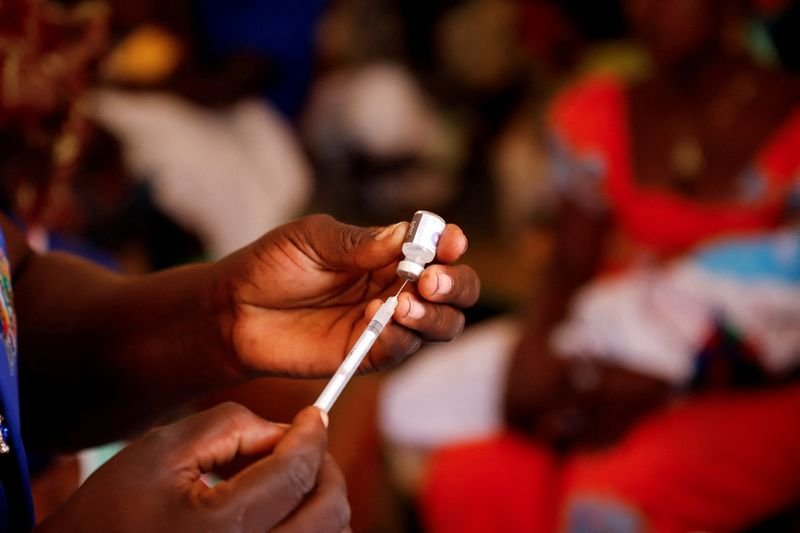US aid freeze sows disruption in HIV, malaria product supply chains
Published by Global Banking & Finance Review®
Posted on February 21, 2025
4 min readLast updated: January 26, 2026

Published by Global Banking & Finance Review®
Posted on February 21, 2025
4 min readLast updated: January 26, 2026

The US aid freeze disrupts supply chains for HIV and malaria products, affecting global health efforts and potentially causing long-term issues.
By Jennifer Rigby and Lisa Baertlein
LONDON (Reuters) - The U.S. government's foreign aid freeze has upended the supply chain for medical products crucial for fighting diseases including HIV and malaria in some of the world's poorest countries, and life-threatening gaps could persist for months, according to two sources familiar with the sector.
The U.S. Agency for International Development (USAID) usually places around $600 million of orders annually for products such as medicines, diagnostic tests and equipment like bed nets, as part of one of its biggest health supply contracts including HIV, malaria and reproductive health.
But the freeze has put orders and forecasts, particularly those made months in advance, on hold. That will likely have far-reaching implications for deliveries, cost, and timings, according to two sources with knowledge of the global health supply chain and others working in the sector.
Companies including the U.S. firm Abbott, Switzerland's Roche, and India's Cipla are all likely to be affected, alongside others including Hologic, Viatris, Hetero and Aurobindo, the first of the sources told Reuters.
"We are monitoring the situation closely. Our highest priority is to ensure that patients have continuous access to our diagnostic tests and treatments around the world," said a Roche spokesperson in response to Reuters' questions. The other companies either declined to comment or did not respond. The U.S. State Department did not immediately respond to requests for comment.
The first source said waivers from the U.S. government, intended to allow lifesaving work to restart, only applied to orders already moving around the world. Even those were not fully functional as the USAID payment system remained down, he said. Future funding and orders were more uncertain, even for companies where the raw materials have been assembled or the manufacturing capacity booked, he added.
Medicines and diagnostic tests for HIV and malaria, as well as preventive tools like bed nets and contraceptives, could be impacted, he said.
"There will be a huge backlog," said Fitsum Lakew Alemayehu, the African Union liaison manager at WACI Health, an African advocacy organization. "In Africa, millions have been on those treatments."
'BULLWHIP' EFFECT
The dismantling of USAID has already had significant impact across the globe, including shuttering HIV clinics, stranding emergency food aid, and halting research.
For medical supplies, the freeze could also hit prices, because companies have been able to operate more efficiently knowing that they would continue to get orders from USAID, all of the sources said.
Prashant Yadav, a medical supply chain expert and senior fellow at the nonpartisan Council on Foreign Relations think tank, said the upheaval could upend this system of advance demand forecasts entirely, hitting prices and ultimately risking budget shortfalls across other buyers, like governments and global health funders.
He said it was an example of the "bullwhip" effect in supply chains, where "any small changes, even if they are for a short duration of time, get amplified at every level in the system". The term is derived from a scientific concept in which movements of a whip are amplified from the origin - the hand cracking the whip - to the endpoint.
Even if the aid freeze ends after a 90-day review, as the Trump administration originally suggested, restarting production will be complex and there could be legal issues, several experts said.
"This is a huge mess to untangle," said Tom Cotter, chief executive officer at Health Response Alliance, a nonprofit organization dedicated to ensuring equitable access to health services during emergencies.
(Reporting by Jennifer Rigby, additional reporting by Maggie Fick in London, Rishika Sadam in Hyderabad)
The US government's foreign aid freeze has disrupted the supply chain for crucial medical products needed to combat diseases like HIV and malaria, putting orders and forecasts on hold.
Companies such as Abbott, Roche, and Cipla are likely to be affected by the aid freeze, which could lead to a backlog in orders and increased prices due to operational inefficiencies.
The 'bullwhip' effect refers to how small changes in demand can lead to larger fluctuations in supply chain dynamics, which is evident in the current disruptions caused by the aid freeze.
Millions of patients in Africa who rely on treatments for HIV and malaria could face significant delays and interruptions in their access to essential medical supplies due to the aid freeze.
Even if the aid freeze is lifted after a review, restarting production will be complex and may involve legal issues, complicating the recovery of supply chains.
Explore more articles in the Headlines category

